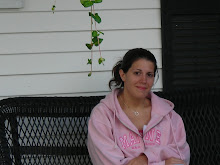
An interesting word, right? It kind of sounds like the word placenta, but what is this 'phagy' suffix at the end? Placentophagy literally means to eat (phagy) the placenta (placento) in Greek. This practice has been around for millions of years, though it has waned tremendously among the human species in recent centuries as we have become more domesticated, civilized, and less connected to our animalistic roots. Many people wonder why this action exists among most mammals. It is not uncommon in the wild for the birthing mother to consume her placenta just following the birth of her offspring. Speculated theories abound, but the strongest one that is held is that a mother performs this task to simply replenish the blood, energy, and nutrients she lost during birth. Animals do not usually eat much food during labor (they certainly cannot go hunt and forage for it) and they are acutely aware of the fact that they must have enough energy following birth to escape any lurking predators that may attack their helpless infants. The placenta is rich in blood vessels, vitamins, minerals, and hormones which help the mother to recover from such a long and daunting feat. Another theory that has been postulated but is really not strongly held is that the mother simply consumes her placenta in order to remove her scent from the area around which she has given birth. This is thought to confuse or even prevent predators from approaching her. This theory is weak, however, because we all know that the placenta is not the only material which is expelled during birth. Amniotic fluid, blood, and other substances pour from the mother throughout the process and they seep into the earth leaving a scent behind. A predator would easily be able to locate this area if the mother had not taken great pains to find a safe place in which to give birth. Also, in observing the science of animal behavior (which I studied intently in college. Can you tell?) if an animal feels threatened immediately following birth, she is more likely to consume her offspring than anything else if she does not deem the situation safe to transport them. So moving onto humans: Placentophagy, as mentioned earlier, is a somewhat rare practice among the civilized world although the tribal communities throughout the earth do continue to do it. The question looms: "Are YOU going to do this, Steph?" Of course I am!! It is known that women who consume their placentas after birth have less occurrence of postpartum depression (due to the leftover hormones in the tissue), less difficulty with milk production, less postpartum anemia, and other things as well. It also helps that we actually use placenta in Traditional Chinese Medicine as a chinese herb. Now of course we do not use human placenta since the dawn of HIV/AIDS, as quality control of sanitation is difficult to uphold; it has been replaced with sheep's placenta and is usually administered in prepared, powdered form. In TCM, we call this a "Yang Tonic" or a hormonal balancer. We prescribe this to patients who have had recurrent miscarriages, patients with irregular menstrual cycles, patients with enlarged prostates, and even patients with incontinence. These physiological processes are all 'Yang' processes and are heavily influenced by the thyroid, liver, and adrenal system all of which the placenta supports. Jack and I have already located a woman who prepares placentas so she will be preparing mine. I don't know that I'm brave enough to eat mine raw so this woman has developed a special dehydrating process which allows for the least amount of hormonal and nutritional disturbances and then she powders the prepared placenta and places it into capsules for me to take as pills during my postpartum period. Her hygiene is impeccable and she never prepares more than one placenta at once so we are guaranteed to receive our own from her (a point that left me a little worried at first until she stated this). It is just one of the many things that our bodies provide for us and, to me, I don't see any better way to support my health than by using something that has been created and sustained by my own blood and tissues. So after all of this are you still squirming at people who consume their own placentas? It's perfectly fine if you are! I encourage you to research this practice and draw from it your own opinions. It does remain to be a controversy in the medical model of maternity care. I'm lucky to have the resources at my fingertips out here in Los Angeles to educate myself properly and unbiasedly and decide to do practically anything I want during this process. Enjoy the future posts!


No comments:
Post a Comment